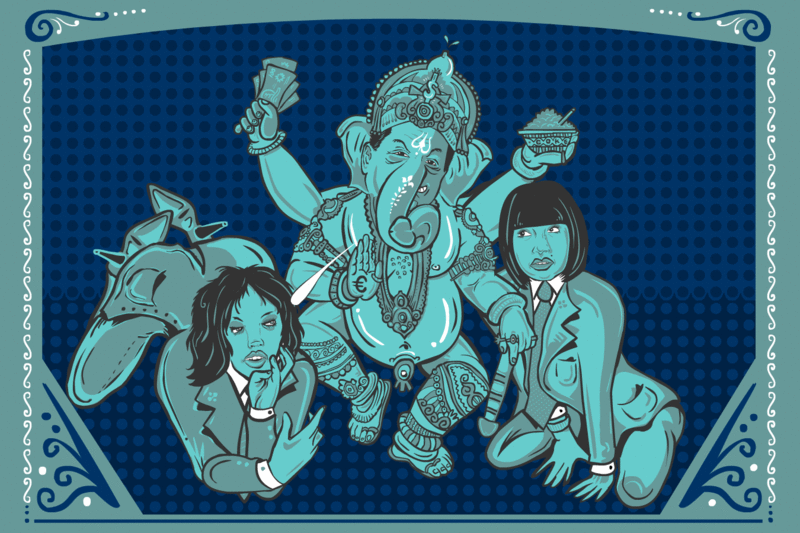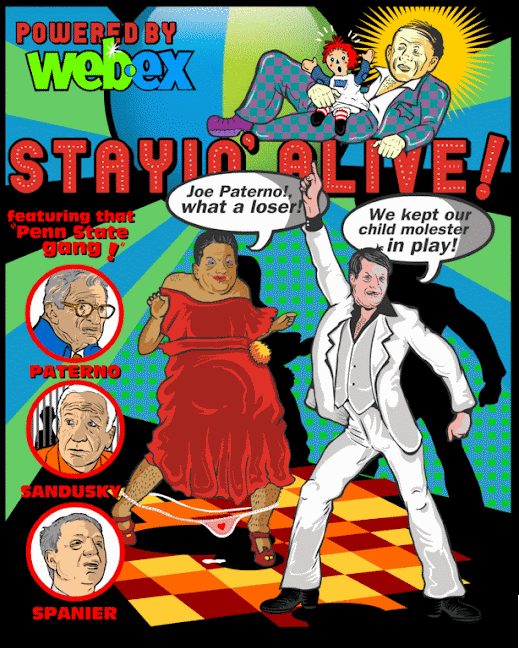Das Ziel des Rechts ist der Friede, das Mittel dazu der Kampf. So lange das Recht sich auf den Angriff von Seiten des Unrechts gefasst halten muss–und dies wird dauern, so lange die Welt steht–wird ihm der Kampf nicht erspart bleiben. Das Leben des Rechts ist Kampf, ein Kampf der Völker–der Staatsgewalt–der Stände–der Individuen.
Alles Recht in der Welt ist erstritten worden, jeder wichtige Rechtssatz hat erst denen, die sich ihm widersetzten, abgerungen werden müssen, und jedes Recht, sowohl das Recht eines Volkes wie das eines Einzelnen, setzt die stetige Bereitschaft zu seiner Behauptung voraus. Das Recht ist nicht blosser Gedanke, sondern lebendige Kraft. Darum führt die Gerechtigkeit, die in der einen Hand die Wagschale hält, mit der sie das Recht abwägt, in der andern das Schwert, mit dem sie es behauptet. Das Schwert ohne die Wage ist die nackte Gewalt, die Wage ohne das Schwert die Ohnmacht des Rechts. Beide gehören zusammen, und ein vollkommener Rechtszustand herrscht nur da, wo die Kraft, mit der die Gerechtigkeit das Schwert führt, der Geschicklichkeit gleichkommt, mit der sie die Wage handhabt.
Recht ist unausgesetzte Arbeit und zwar nicht etwa bloss der Staatsgewalt, sondern des ganzen Volkes. Das gesammte Leben des Rechts, mit einem Blicke überschaut, vergegenwärtigt uns dasselbe Schauspiel rastlosen Ringens und Arbeitens einer ganzen Nation, das ihre Thätigkeit auf dem Gebiete der ökonomischen und geistigen Produktion gewährt. Jeder Einzelne, der in die Lage kommt, sein Recht behaupten zu müssen, übernimmt an dieser nationalen Arbeit seinen Antheil, trägt sein Scherflein bei zur Verwirklichung der Rechtsidee auf Erden.
Freilich nicht an Alle tritt diese Anforderung gleichmässig heran. Unangefochten und ohne Anstoss verläuft das Leben von Tausenden von Individuen in den geregelten Bahnen des Rechts, und würden wir ihnen sagen: Das Recht ist Kampf – sie würden uns nicht verstehen, denn sie kennen dasselbe nur als Zustand des Friedens und der Ordnung. Und vom Standpunkt ihrer eigenen Erfahrung haben sie vollkommen Recht, ganz so wie der reiche Erbe, dem mühelos die Frucht fremder Arbeit in den Schoos gefallen ist, wenn er den Satz: Eigenthum ist Arbeit, in Abrede stellt. Die Täuschung Beider hat ihren Grund darin, dass die zwei Seiten, welche sowohl das Eigenthum wie das Recht in sich schliessen, subjectiv in der Weise auseinanderfallen können, dass dem Einen der Genuss und der Friede, dem Andern die Arbeit und der Kampf zu Theil wird.
Das Eigenthum wie das Recht ist eben ein Januskopf mit einem Doppelantlitz; Einigen kehrt er bloss die eine Seite, Andern bloss die andere Seite zu, daher die völlige Verschiedenheit des Bildes, das beide von ihm empfangen. In Bezug auf das Recht gilt dies wie von einzelnen Individuen, so auch von ganzen Zeitaltern. Das Leben des einen ist Krieg, das Leben des andern Friede, und die Völker sind durch diese Verschiedenheit der subjectiven Vertheilung beider ganz derselben Täuschung ausgesetzt, wie die Individuen. Eine lange Periode des Friedens – und der Glaube an den ewigen Frieden steht in üppigster Blüthe, bis der erste Kanonenschuss den schönen Traum verscheucht, und an die Stelle eines Geschlechts, das mühelos den Frieden genossen hat, ein anderes tritt, welches sich ihn durch die harte Arbeit des Krieges erst wieder verdienen muss. So vertheilt sich beim Eigenthum wie beim Recht Arbeit und Genuss, aber für den Einen, der geniesst und im Frieden dahinlebt, hat ein Anderer arbeiten und kämpfen müssen. Der Frieden ohne Kampf, der Genuss ohne Arbeit gehören der Zeit des Paradieses an, die Geschichte kennt beide nur als Resultate unablässiger, mühseliger Anstrengung.
Diesen Gedanken, dass der Kampf die Arbeit des Rechts ist und in Bezug auf seine praktische Nothwendigkeit sowohl wie seine ethische Würdigung auf dieselbe Linie mit der Arbeit beim Eigenthum zu stellen ist, gedenke ich im Folgenden weiter auszuführen. Ich glaube damit kein überflüssiges Werk zu thun, im Gegentheil eine Unterlassungssünde gut zu machen, die sich unsere Theorie (ich meine nicht bloss die Rechtsphilosophie, sondern auch die positive Jurisprudenz) hat zu Schulden kommen lassen. Man merkt es unserer Theorie nur zu deutlich an, dass sie sich mehr mit der Wage als mit dem Schwert der Gerechtigkeit zu beschäftigen hat; die Einseitigkeit des rein wissenschaftlichen Standpunktes, von dem aus sie das Recht betrachtet, und der sich kurz dahin zusammenfassen lässt, dass er ihr das Recht weniger von seiner realistischen Seite als Machtbegriff, als vielmehr von seiner logischen Seite als System abstracter Rechtssätze vor Augen führt, hat meines Erachtens ihre ganze Auffassung vom Recht in einer Weise beeinflusst, wie sie zu der rauhen Wirklichkeit des Rechts gar wenig stimmt – ein Vorwurf, für den der Verlauf meiner Darstellung es an Belegen nicht fehlen lassen wird.
–Rudolph von Jhering, Der Kampf um's Recht, 1884 |
The end of the law is peace. The means to that end is war. So long as the law is compelled to hold itself in readiness to resist the attacks of wrong—and this it will be compelled to do until the end of time—it cannot dispense with war. The life of the law is a struggle,—a struggle of nations, of the state power, of classes, of individuals.
All the law in the world has been obtained by strife. Every principle of law which obtains had first to be wrung by force from those who denied it; and every legal right—the legal rights of a whole nation as well as those of individuals—supposes a continual readiness to assert it and defend it. The law is not mere theory, but living force. And hence it is that Justice which, in one hand, holds the scales, in which she weighs the right, carries in the other the sword with which she executes it. The sword without the scales is brute force, the scales without the sword is the impotence of law. The scales and the sword belong together, and the state of the law is perfect only where the power with which Justice carries the sword is equalled by the skill with which she holds the scales.
Law is an uninterrupted labor, and not of the state power only, but of the entire people. The entire life of the law, embraced in one glance, presents us with the same spectacle of restless striving and working of a whole nation, afforded by its activity in the domain of economic and intellectual production. Every individual placed in a position in which he is compelled to defend his legal rights, takes part in this work of the nation, and contributes his mite towards the realization of the idea of law on earth.
Doubtless, this duty is not incumbent on all to the same extent. Undisturbed by strife and without offense, the life of thousands of individuals passes away, within the limits imposed by the law to human action; and if we were to tell them: The law is a warfare, they would not understand us, for they know it only as a condition of peace and of order. And from the point of view of their own experience they are entirely right, just as is the rich heir into whose lap the fruit of the labor of others has fallen, without any toil to him, when he questions the principle: property is labor. The cause of the illusion of both is that the two sides of the ideas of property and of law may be subjectively separated from each other in such a manner that enjoyment and peace become the part of one, and labor and strife of the other. If we were to address ourselves to the latter, he would give us an entirely opposite answer.
And, indeed, property, like the law, is a Janus-head with a double face. To some it turns only one side, to others only the other; and hence the difference of the picture of it obtained by the two. This, in relation to the law, applies to whole generations as well as to single individuals. The life of one generation is war, of another peace; and nations, in consequence of this difference of subjective division, are subject to the same illusion precisely as individuals. A long period of peace, and, as a consequence thereof, faith in eternal peace, is richly enjoyed, until the first gun dispels the pleasant dream, and another generation takes the place of the one which had enjoyed peace without having had to toil for it, another generation which is forced to earn it again by the hard work of war. Thus in property and law do we find labor and enjoyment distributed. But the fact that they belong together does not suffer any prejudice in consequence. One person has been obliged to battle and to labor for another who enjoys and lives in peace. Peace without strife, and enjoyment without work, belong to the days of Paradise. History knows both only as the result of painful, uninterrupted effort.
That, to struggle, is, in the domain of law, what to labor, is, in that of economy, and, that, in what concerns its practical necessity as well as its moral value, that struggle is to be placed on an equal footing with labor in the case of property, is the idea which I propose to develop further below. I think that in so doing I shall be performing no work of supererogation, but, on the contrary, that I shall be making amends for a sin of omission which may rightly be laid at the door of our theory of law; and not simply at the door of our philosophy of law, but of our positive jurisprudence also. Our theory of law, it is only too easy to perceive, is busied much more with the scales than with the sword of Justice. The one-sidedness of the purely scientific standpoint from which it considers the law, looking at it not so much as it really is, as an idea of force, but as it is logically, a system of abstract legal principles, has, in my opinion, impressed on its whole way of viewing the law, a character not in harmony with the bitter reality. This I intend to prove.
–Rudolph von Jhering, The Struggle for Law, translated by John J. Lalor, 1915 |






























